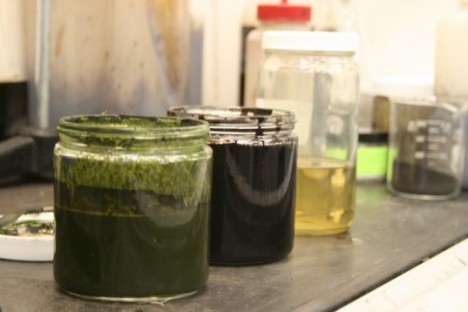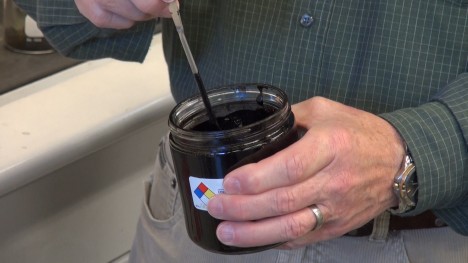Science has a love for making things go faster. Take the million-year process of converting algae into crude oil for example. Scientists from the Department of Energy have created a way to cut the time down to less than one hour. And as a bonus, the process creates a reusable byproduct.
Working at the Pacific Northwest National Laboratory, the team used a chemical reactor that takes a wet algae slurry and puts it through a process called hydrothermal liquefaction and catalytic hydrothermal gasification. The term may be dizzying, but after steeping in conditions at 662 degrees and 3000 PSI, the result is crude oil, along with a water/phosphorous byproduct.
“It’s a bit like using a pressure cooker, only the pressures and temperatures we use are much higher,” Douglas Elliott, the team leader of the project, said in a press release. They hope that with further refinement, the crude oil can be converted into burnable products, such as fuels for planes, diesel engines and even cars. And the process creates a self-sustainable product. “There are bonuses,” Elliot went on, “like being able to extract usable gas from the water and then recycle the remaining water and nutrients to help grow more algae.”



